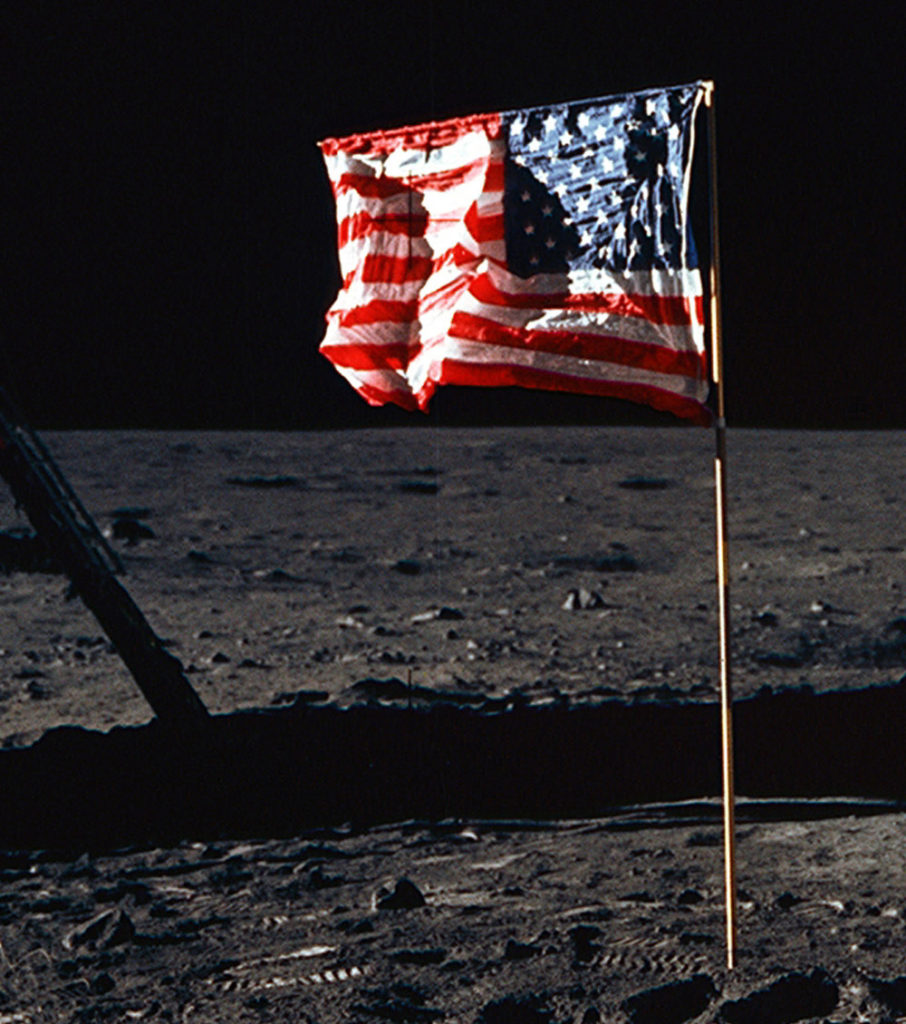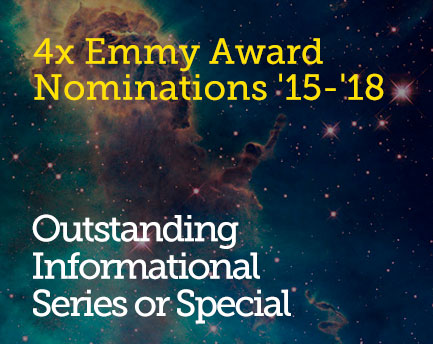January 21, 2014 9:22 am
StarTalk Radio Survey: Who Owns Space?

Image credit: NASA
The exploration of space is entering a new era. China has a rover on the Moon. Private industry is contemplating a colony on Mars. Corporations are planning to mine near-Earth asteroids for minerals. The US Congress introduced a bill to turn the Apollo Lunar Landing Sites into a national historic park. Nations from India to Mexico are launching satellites, increasing orbital traffic and the possibility of damage to very expensive space stations, satellites, spacecraft and space travelers.
Everybody is getting into the space exploration game, but what are the rules of that game? Before the lawyers get involved, we wanted to find out what you, our fans, think. Each week for three weeks, we’ll ask you your opinion about one of the most pressing legal questions our planet faces as we expand into space. Select one choice from the options below, or write in your own answer in the comments. You can only vote once, and you can’t change your vote. Sign up for our newsletter to find out each week’s survey results.
Sponsored by Legal Zoom, where you can get the legal help you need at a price you can afford. From Wills to Business Formations… Trademarks, Powers of Attorney and more…
Now that it’s 2014, don’t put off the things you need to do — go to LegalZoom.com now.
For even more savings, use discount code “StarTalk”.
LegalZoom is not a law firm but can connect you with a 3rd party
attorney and provides you with self-help services.
StarTalk Radio wants to know what you think!
Question 1: Asteroid Ownership
As NASA turns its attention to asteroid mining with OSIRIS-Rex and Planetary Resources moves ahead with its plan to scout and mine near-Earth asteroids, it will not be long before the legal issues surrounding asteroid mining and ownership end up in court.
Who Owns an Asteroid? You decided:
• You can’t own the asteroid, but you can legally file for space property rights, and own what you extract. (45%)
• Nobody. The 1967 United Nations Outer Space Treaty says nations can’t claim celestial bodies, so neither can companies or people. (28%)
• The issue is undecided. (9%)
• Other (See the comments below!) (9%)
• The private company that mines it. (6%)
• The country that lands on it and plants their flag first. (3%)
Question 2: National Park on the Moon
On July 8, 2013, Representative Rep. Donna Edwards [D-MD4] introduced a bill in Congress called the Apollo Lunar Landing Legacy Act, which establishes the Apollo Lunar Landing Sites National Historical Park on the Moon as a unit of the National Park System, “to provide public access to, and management, interpretation, and historic preservation of, historically significant Apollo lunar landing site resources under that agency’s jurisdiction or control.” The idea was immediately controversial, and discussions about legality ranged far and wide around the globe.
Can the United States create a National Park on the Moon? You decided:
• No, the 1967 United Nations Outer Space Treaty says nations can’t claim celestial bodies, and this park would violate that treaty. (56%)
• Other (See the comments below!) (22%)
• Doesn’t the US have more important things to do here on Earth. (9%)
• Yes, if Congress passes the bill and the President signs it into law. (7%)
• Yes, it’s the only way to preserve our historical legacy. (4%)
• The issue is undecided. (3%)
Question 3: Satellites and Space Debris
According to NASA, there are 500,000 pieces of space debris the size of a marble or larger orbiting the Earth at speeds of up to 17,500 mph. Add to this the fact that new satellites from nations across the globe are increasing traffic and the possibility of damage to very expensive space stations, satellites, and space travelers.
It’s already happened: five years ago, on Feb. 10, 2009 a derelict Russian satellite, Cosmos 2251, collided with Iridium 33, a satellite operated by a US corporation, destroying it. According to Space Safety Magazine, Iridium sought damages from the Russian Federation under the Liability Convention of 1972, which expanded on the Outer Space Treaty of 1967, while the Russians blamed Iridium for not avoiding their satellite, which was derelict and no longer operating under their control. The incident remains unresolved, which brings us to this week’s question:
[poll id=”17″]
Get the most out of StarTalk!
Ad-Free Audio Downloads
Priority Cosmic Queries
Patreon Exclusive AMAs
Signed Books from Neil
Live Streams with Neil
Learn the Meaning of Life
...and much more

 Become a Patron
Become a Patron

